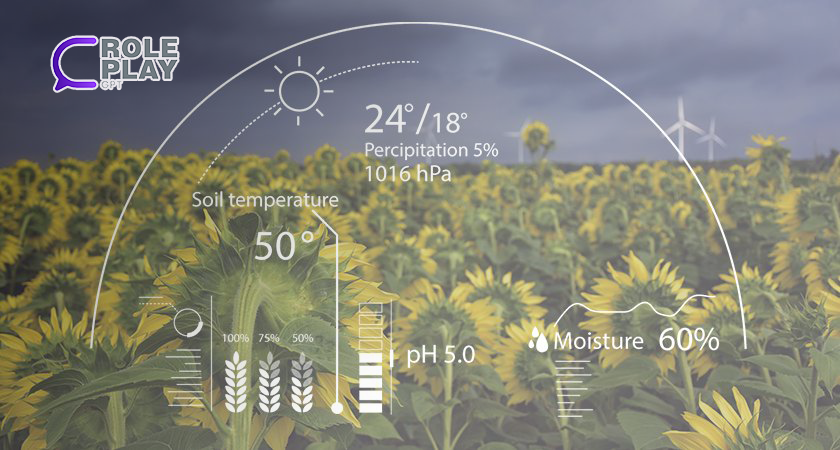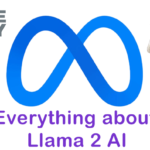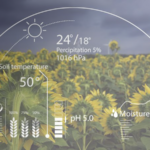In recent years, the agricultural sector has seen significant advancements with the integration of artificial intelligence (AI) technologies. AI is transforming traditional farming practices, enhancing productivity, sustainability, and resource efficiency. This article dives into the various AI trends in agriculture that are reshaping the landscape of modern farming. We will explore how AI is changing the Farming industry with predictive analytics, autonomous machinery, and many more things.
AI Trends in Agriculture: The Path Towards Innovation
Precision Farming: Optimizing Crop Management
Precision farming, powered by AI, uses data-driven insights to optimize crop management. It leverages various technologies such as sensors, drones, and satellite imagery to monitor crop health, soil conditions, and weather patterns. Farmers can make informed decisions about irrigation, fertilization, and pest control, resulting in higher crop yields and reduced resource wastage.
Predictive Analytics: Anticipating Challenges
AI’s predictive analytics capabilities allow farmers to anticipate potential challenges and plan accordingly. By analyzing historical and real-time data, AI can forecast weather patterns, pest outbreaks, and market demands. This information empowers farmers to take proactive measures and minimize risks, ensuring a more stable and resilient agricultural system.
Smart Irrigation Systems: Efficient Water Management
AI-driven smart irrigation systems optimize water usage by precisely delivering water to crops based on their specific needs. These systems consider factors such as soil moisture levels, weather forecasts, and crop type. By reducing water wastage and over-irrigation, smart irrigation contributes to water conservation and sustainable farming practices.
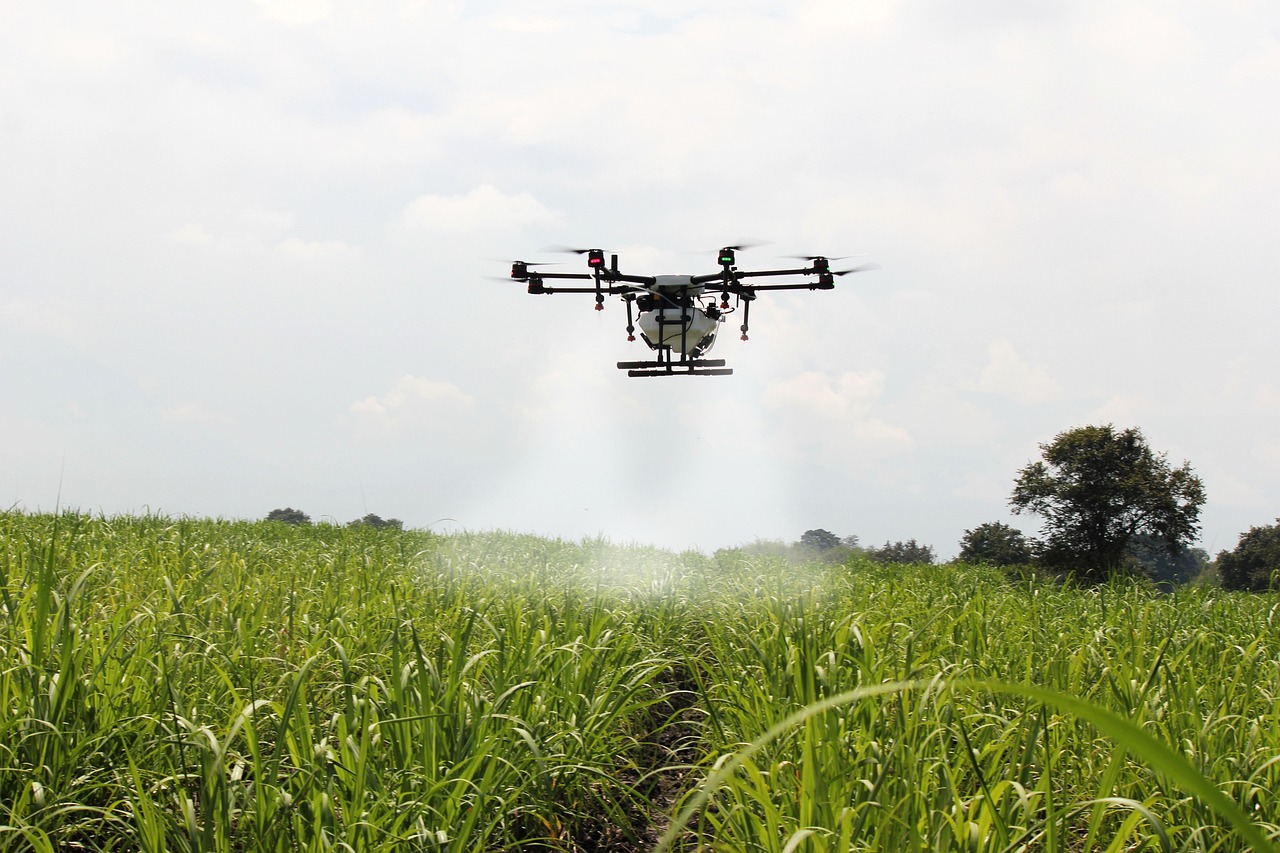
Crop Monitoring with Computer Vision: Detecting Plant Diseases
Computer vision, an AI technology, is transforming crop monitoring by detecting plant diseases and nutrient deficiencies early on. AI-powered cameras can analyze images of crops and identify signs of diseases, enabling farmers to implement targeted interventions and prevent extensive crop losses.
Robotics and Autonomous Machinery: Improving Efficiency
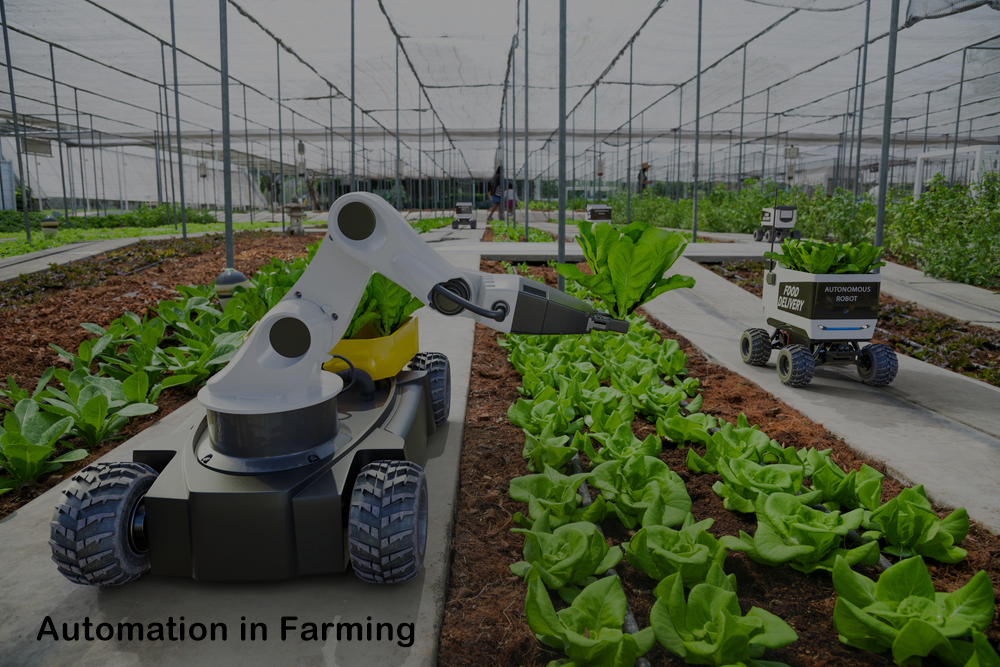
AI-driven robotics and autonomous machinery are revolutionizing farm operations. Self-driving tractors, harvesters, and drones can perform tasks with precision and efficiency, reducing labor requirements and increasing productivity. These machines can operate 24/7, optimizing farm operations and saving time and resources.
Blockchain in Agriculture: Enhancing Transparency
Blockchain technology is being integrated into agricultural supply chains, promoting transparency and traceability. By recording every transaction and movement of agricultural products on a decentralized ledger, blockchain ensures the authenticity and quality of food products, thus building consumer trust.
Farm Management Software: Streamlining Operations
AI-powered farm management software simplifies the complexities of farming by centralizing data and automating administrative tasks. These platforms help farmers with planning, inventory management, and financial analysis, enabling them to make data-driven decisions and maximize profitability.
Climate-Smart Agriculture: Adapting to Climate Change
AI’s climate modeling capabilities facilitate climate-smart agriculture by predicting the impact of climate change on crops and identifying suitable planting times and crop varieties. This adaptive approach ensures food security and resilience in the face of changing environmental conditions.
Robotics for Harvesting: Increasing Efficiency
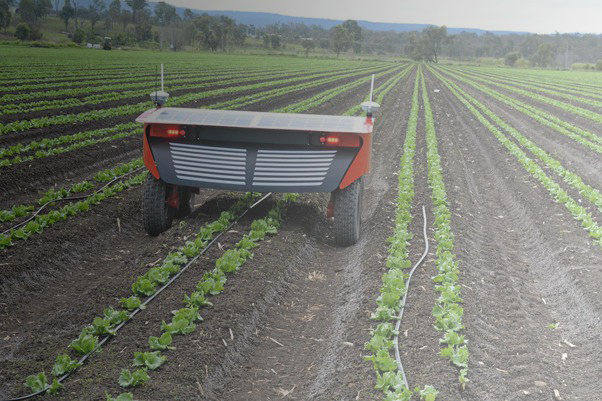
AI-driven robotic harvesting systems are being developed to increase efficiency in crop harvesting. These robots can delicately pick and sort fruits and vegetables, minimizing waste and reducing labor-intensive harvesting processes.
Agricultural Drones: Aerial Crop Analysis
Agricultural drones equipped with AI-powered cameras can assess crop health over vast areas quickly. By capturing high-resolution images and multispectral data, these drones provide valuable insights into crop conditions and help farmers make targeted decisions for improved yields.
Livestock Monitoring with IoT: Enhancing Animal Welfare
IoT devices combined with AI allow farmers to monitor livestock health and behavior remotely. From detecting early signs of illness to managing feeding schedules, these technologies improve animal welfare and contribute to efficient livestock management.
AI in Aquaculture: Sustainable Fish Farming
AI is making waves in aquaculture by optimizing fish farm operations. AI-driven systems monitor water quality, detect disease outbreaks, and regulate feeding patterns, promoting sustainable fish farming practices.
Soil Health Management: Restoring Soil Fertility
AI helps in soil health management by analyzing soil data and recommending appropriate measures to restore soil fertility. By optimizing soil health, farmers can enhance crop productivity and reduce the need for chemical inputs.
AI in Food Processing: Quality Control
AI is enhancing food processing through quality control systems that use computer vision to inspect and sort food products based on size, shape, and defects. This ensures consistent product quality and reduces food waste.
Chatbots for Farmer Support: Access to Information
AI-powered chatbots offer farmers instant access to agricultural information and expert advice. Whether it’s crop-specific recommendations or weather updates, chatbots facilitate knowledge dissemination and improve farmer decision-making.
AI in Weed Management: Precision Weed Control
AI-driven weed management systems can identify and target specific weed species with precision. This reduces the reliance on herbicides, minimizes environmental impact, and ensures effective weed control.
Remote Sensing for Land Mapping: Planning and Analysis
Remote sensing technologies, supported by AI, can map and analyze large areas of farmland efficiently. These insights aid in land planning, crop rotation, and resource allocation for optimized farming practices.
AI for Urban Farming: Maximizing Space Efficiency
AI plays a crucial role in urban farming by optimizing the use of limited space for vertical farming and rooftop gardens. Automated systems manage lighting, irrigation, and nutrient supply, maximizing crop yield in urban environments.
AI in Dairy Farming: Smart Herd Management
AI-based systems monitor dairy cows’ health, reproduction, and milk production in real time. Smart herd management improves dairy farm productivity and animal well-being.
Precision Livestock Farming: Monitoring Animal Health
Precision livestock farming employs AI technologies to monitor animal health, behavior, and nutrition. This data-driven approach helps optimize livestock performance and reduce healthcare costs.
AI for Crop Breeding: Accelerating Genetic Improvement
AI expedites crop breeding processes by analyzing genetic data and identifying desirable traits. This leads to the development of improved crop varieties with enhanced resilience and productivity.
AI in Aquaponics: Sustainable Farming Systems
AI optimizes aquaponics systems, which combine fish farming with hydroponics. AI-controlled nutrient delivery and fish waste recycling create a sustainable closed-loop farming system.
Digital Twins in Agriculture: Virtual Farming Simulation
Digital twins, AI-powered virtual farming simulations, allow farmers to model their farms and test various strategies before implementation. This reduces risks and enhances decision-making.
AI for Pest Detection: Early Intervention
AI-based pest detection systems identify and classify pests in crops accurately. Early intervention reduces crop damage and the need for excessive pesticide use.
AI and Weather Forecasting: Accurate Climate Predictions
AI-enhanced weather forecasting models provide more accurate climate predictions, allowing farmers to plan their planting and harvesting schedules effectively.
Frequently Asked Questions (FAQs)
How is AI transforming farming?
AI is transforming agriculture through precision farming, predictive analytics, autonomous machinery, and smart irrigation systems, optimizing crop management and resource efficiency.
What are the benefits of AI in agriculture?
AI in agriculture offers benefits such as increased crop yields, reduced resource wastage, optimized water usage, and proactive pest management, contributing to sustainable farming practices.
Is AI expensive for farmers to implement?
While AI technologies may have initial costs, the long-term benefits outweigh the investment. AI can help farmers reduce operational expenses, improve productivity, and enhance overall farm profitability.
How does AI contribute to sustainable agriculture?
AI contributes to sustainable agriculture by promoting efficient resource usage, reducing chemical inputs, minimizing food waste, and enhancing climate-smart farming practices.
Can AI help small-scale farmers?
Yes, AI offers scalable solutions that can be adapted to various farm sizes. AI-powered technologies, such as chatbots and mobile apps, provide valuable information and support to small-scale farmers.
Is AI in agriculture safe for the environment?
AI in agriculture promotes sustainable practices that reduce environmental impact, such as precision farming, smart irrigation, and targeted pest control, making it safer for the environment.
Conclusion – How important to have AI in Agriculture?>
The integration of AI in agriculture marks a significant step towards transforming the future of farming. From precision farming to robotics, AI-powered technologies offer innovative solutions to improve crop yields, optimize resource usage, and ensure sustainable agricultural practices. As AI continues to evolve, its potential to revolutionize agriculture and address global food challenges becomes even more promising. Embracing these AI trends in agriculture, farmers can lead the way toward a more efficient, resilient, and sustainable farming industry.
Read more about practical uses of AI in daily life in our blog
